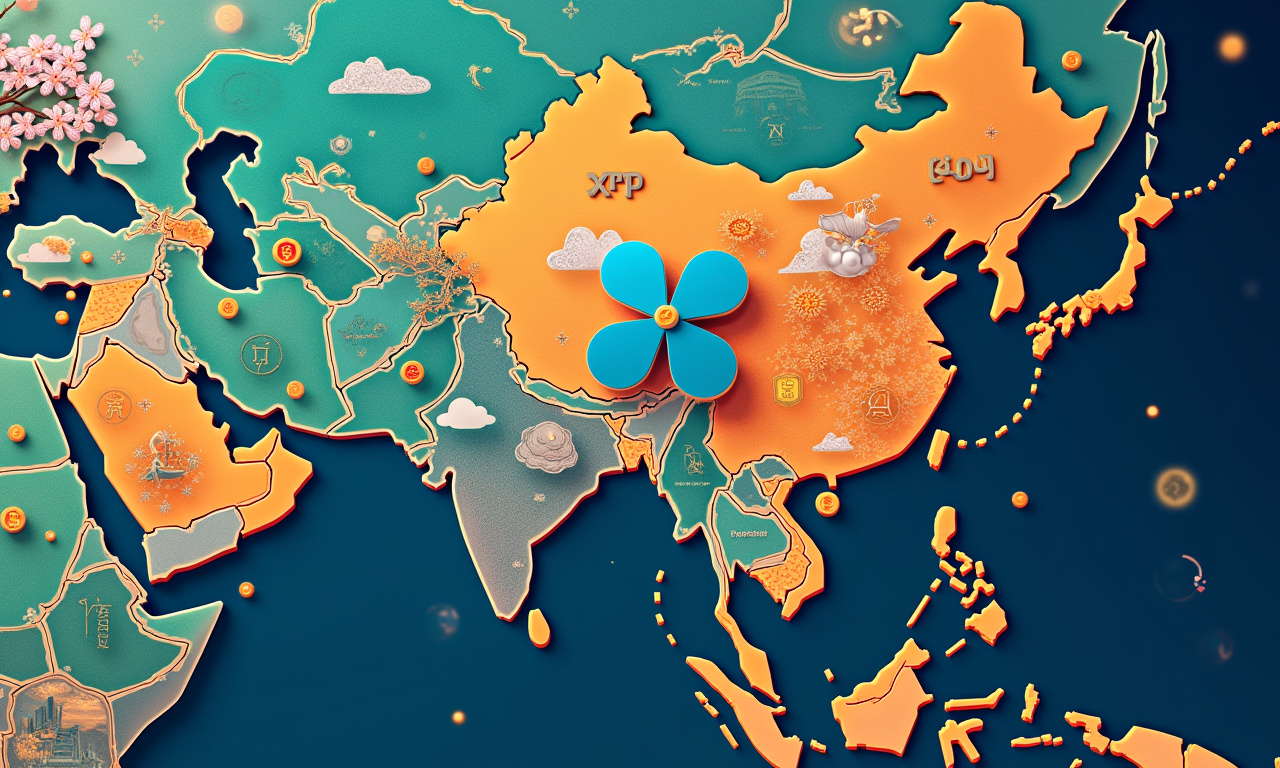
Hoskinson's $250K Bitcoin Bet: Will Asia's Startups Ride the Wave?

Josefa dela Cruz
Charles Hoskinson, the mind behind Cardano, just threw down a gauntlet: Bitcoin at $250,000 by the end of 2025. Bold? Absolutely. Game-changing for Asian blockchain startups? Potentially. While BTC may be hovering above the $80,000 level at the moment. With tariff anxieties and other global uncertainties pressuring its finances, it would be easy to discount such an ambitious prediction. Let’s not be so hasty to condemn. Hoskinson's vision, fueled by geopolitical instability and regulatory tailwinds, could be a tidal wave for Asia's burgeoning blockchain scene.
What If He's Actually Right?
If we’re being honest, the world feels broken right now. Whether from Eastern Europe to the Taiwan Strait, the multilateral treaties and transnational corporate models that have sustained international trade are appearing more tenuous by the day. Hoskinson wants to use this as rocket fuel for crypto. He argues, and I agree, that in times of uncertainty, people crave alternatives – a system outside the control of governments and central banks.
Now, picture this: Bitcoin does hit $250,000. We’re talking about that new little blockchain startup in Manila that is now attracting VC interest. As it continues to fight for its share of funding, its popularity has soared! Well, that’s because a rising Bitcoin tide lifts all crypto boats. It provides validation of the whole industry, infusing confidence and, most importantly, capital.
- More Funding Rounds: VC firms, both local and international, will be scrambling to invest in promising blockchain projects.
- New Project Surge: Expect an explosion of new blockchain initiatives, driven by both the lure of quick profits and a genuine desire to build innovative solutions.
- Talent Migration: Higher valuations and increased funding will attract top talent from traditional industries, further accelerating growth.
Think of the Philippines. A country that has the largest unbanked population and the fastest growing technical labor talent in the world. A Bitcoin boom would create tremendous opportunity, giving power to entrepreneurs and fueling our economic recovery.
Asia's Biggest Challenge Now?
It's not just about Bitcoin's price. It's about regulation. Hoskinson is betting on the GENIUS Act and the STABLE Act in the U.S. bringing clarity to stablecoins, potentially paving the way for giants like Apple and Amazon to embrace crypto. That's huge. What about Asia?
The regulatory landscape is a patchwork quilt. On one end of the spectrum are countries that are embracing crypto wholeheartedly, on the other are those being cautious, or even hostile. That uncertainty remains one of the biggest obstacles to continued recovery and expansion. Startups require unambiguous regulatory guidelines to be able to innovate within their field and scope of work. Without them, they're navigating a minefield.
The Philippines, for example, is making strides in regulating crypto, but more needs to be done to create a truly supportive environment. A $250,000 Bitcoin won’t suddenly make all these issues go away. In fact, it may make them worse if regulators are not ready. This is where the emotional reactions homeostasis, anxiety, and fear come into play. They build a sense of regulatory urgency that pressures regulators to move on the fast track.
- Inconsistent Regulations: Varying rules across different Asian countries create compliance headaches for startups.
- Lack of Clarity: Ambiguous regulations stifle innovation and discourage investment.
- Risk of Crackdowns: The threat of sudden regulatory crackdowns creates uncertainty and fear.
While numbers and forecasts are nice, they only tell half the story. What about the people behind these startups? Fabulous founders the likes of whom are trusting their futures to creating the future of blockchain on the ground in Asia?
Founder Stories: The Human Element
As part of this effort, I had the opportunity to catch up with some of these new founders. Their hopes are optimistic, but their anxieties are warranted. They're excited about the potential of a Bitcoin bull run, but they're worried about regulatory hurdles and the risk of being priced out of the market.
One founder, let's call him "Ben" from Vietnam, told me, "A $250,000 Bitcoin would be a dream come true. It would give us the resources we need to scale our operations and reach more users. We're concerned about the government's stance on crypto. We need clear regulations to protect our business and our users."
Another founder, “Sarah” from the Philippines, told us the same. "We're seeing a lot of interest in blockchain technology in the Philippines, but we're facing a lot of challenges. Funding is hard to come by, and the regulatory environment is very much a work in progress. Yes, a Bitcoin boom would make everything different, but only if the stars align and we have good policies ready to go.
These are two examples that paint a picture that exemplifies the confusing and contradictory reality on the ground. It's not just about Bitcoin's price. It's about creating a supportive ecosystem where startups can thrive.
So, will Hoskinson's prediction come true? Only time will tell. But one thing is certain: if Bitcoin does reach $250,000, Asia's blockchain startups will need to be ready to ride the wave. And that means addressing the regulatory challenges, fostering innovation, and supporting the founders who are building the future, one block at a time. It's time to act, Asia. The future is knocking.
So, will Hoskinson's prediction come true? Only time will tell. But one thing is certain: if Bitcoin does reach $250,000, Asia's blockchain startups will need to be ready to ride the wave. And that means addressing the regulatory challenges, fostering innovation, and supporting the founders who are building the future, one block at a time. It's time to act, Asia. The future is knocking.


